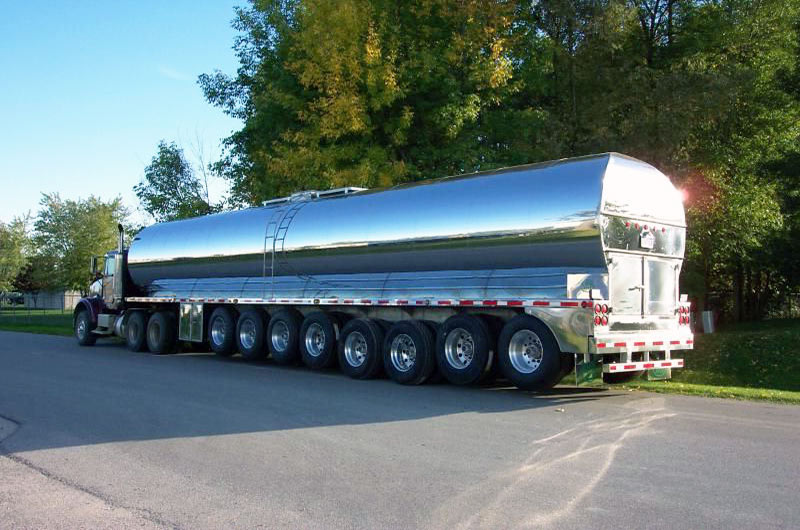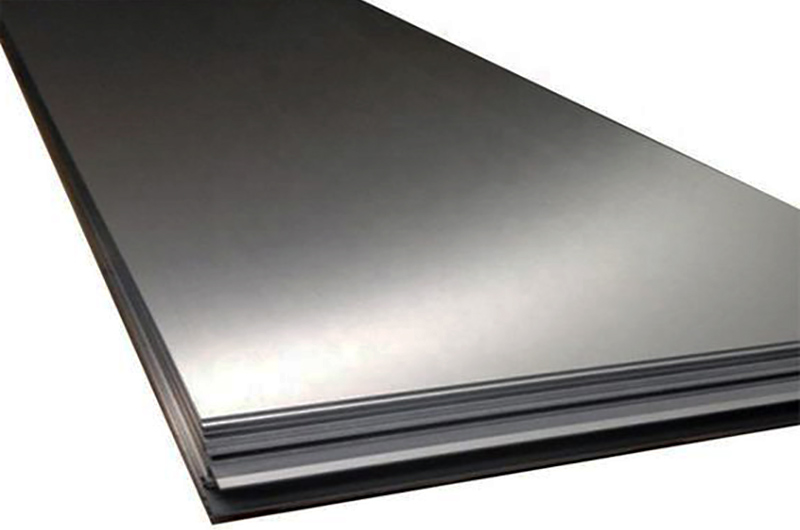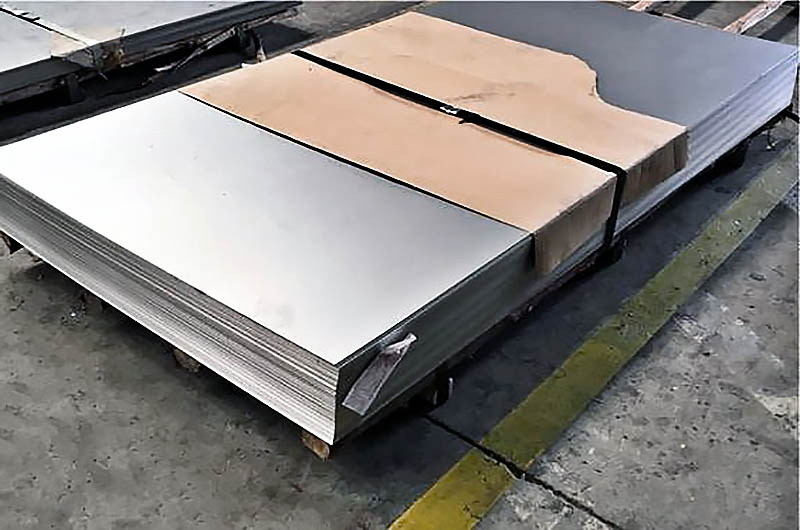Aluminum Plate for Tankers Bulkhead
Alloy: 5083/5454/6061/6016 Safe and Efficient
In the bulk liquid transport sector, the materials used to construct tanker bulkheads play a vital role in ensuring the safety, efficiency and environmental responsibility of the entire industry.
Tanker bulkheads must withstand significant stresses, resist corrosion from the cargo they contain, and be lightweight enough to enable efficient transportation. Aluminum plates, especially alloy aluminum sheets, have become an excellent solution to these challenges and their use is becoming more and more common in the industry.

Advantages of Aluminum Plate for Tankers Bulkhead
Aluminum panels offer several unique advantages that make them a suitable choice for the construction of tanker bulkheads.
1. Strength and Durability
Aluminum is inherently strong and durable, making it ideally suited to withstand the rigors of tanker shipping. Aluminum panels can be designed to provide the necessary structural integrity to resist deformation, even under enormous stresses. This strength ensures the safety of cargo and prevents accidents caused by structural failure.
2. Corrosion Resistance
One of the outstanding features of aluminum is its natural resistance to corrosion. Aluminum forms a protective oxide layer on its surface that acts as a barrier against moisture and chemical attack. This corrosion resistance is critical for tanker bulkheads as they are frequently exposed to corrosive liquids such as acids, alkaline solutions, and even salt water from maritime transport.
3. Light Weight
Aluminum is particularly lightweight compared to other metals commonly used in tanker bulkhead construction, such as steel. This weight advantage means reduced fuel consumption, lower emissions and lower transportation costs. Light tankers are also easier to operate and put less stress on roads and bridges.
4. Low maintenance cost
Aluminum's corrosion resistance means it requires less maintenance than materials prone to rust and corrosion. Reduced maintenance requirements help reduce operating costs and reduce disruptions during transportation.
5. Formability and design flexibility
Aluminum is highly formable and can be shaped to the specific design requirements of tanker bulkheads. This flexibility allows for the creation of custom bulkhead designs that optimize cargo capacity and efficiency.

6. Recyclability
Aluminum is a fully recyclable material, in line with the transport industry’s growing focus on environmental sustainability. Recycling aluminum is energy efficient and reduces the need for primary aluminum production, which has a significant environmental impact.
7. Beautiful
The appearance of aluminum is also an advantage as it can look sleek and modern. This is especially important in industries that value professional and clean equipment presentation, such as food grade liquid transportation.
Aluminum Alloy Commonly used in Tankers Bulkhead
Different alloy compositions are tailored to suit different applications, and when it comes to tanker bulkheads, a variety of aluminum alloys are preferred due to their unique qualities. The following are some of the most commonly used aluminum alloys for tanker bulkhead structures:
5083 Aluminum Plate for Tankers Bulkhead
5083 Aluminum Plate is highly regarded in the marine and transportation industries for its exceptional combination of strength, corrosion resistance and weldability.
5083 aluminum alloy contains magnesium, which helps increase its strength and corrosion resistance, making it ideal for tanker bulkheads. The main properties of 5083 aluminum alloy include:
- high strength
- Excellent corrosion resistance, especially in marine environments
- good weldability
- light
These properties make 5083 Aluminum Plate an excellent choice for building bulkheads on tankers transporting a variety of liquids, including those with corrosive properties.
5454 Aluminum Plate for Tankers Bulkhead
Aluminum alloy 5454 is another alloy of particular relevance to the transportation industry. It has some similarities to alloy 5083 in that it contains magnesium and has excellent corrosion resistance, but it is often chosen for different applications due to its unique properties. Key features of 5454 Aluminum Plate include:
- High strength, high toughness
- Excellent corrosion resistance, especially in salt water environments
- good weldability
- Ideal for applications requiring high impact resistance
This alloy is particularly suitable for marine and offshore structures, and its use in tanker bulkheads ensures long-lasting durability in challenging conditions.

6061 Aluminum Plate for Tankers Bulkhead
Aluminum alloy 6061 is a versatile alloy that can be used in a variety of industries, including transportation. Containing magnesium and silicon, it provides a balance of strength, corrosion resistance and formability. Key features of 6061 Aluminum Plate include:
- Good strength
- Moderate corrosion resistance
- Excellent formability, making it suitable for complex bulkhead designs
- Weldable
While not as corrosion-resistant as Alloys 5083 and 5454, Alloy 6061 was chosen for its superior formability, allowing for the creation of custom bulkhead designs.
6016 Aluminum Plate for Tankers Bulkhead
Aluminum alloy 6016 is another aluminum alloy that exhibits excellent properties in transportation applications, including tanker bulkhead structures. This alloy is mainly composed of aluminum, magnesium and silicon. Key features of 6016 Aluminum Plate include:
- high strength
- good corrosion resistance
- Excellent formability and bendability
- Weldable
Alloy 6016 is known for its good combination of strength and formability, making it suitable for tanker bulkheads that require complex forming or bending.
The choice of aluminum alloy depends on the specific requirements of the tanker bulkhead, such as cargo type, environmental conditions and design considerations.
Tankers Bulkhead Material Selection Considerations
Tanker bulkheads are an important part of the transportation of liquid cargo, and the material selection for tanker bulkheads is crucial, as the selected materials must meet these requirements in the most efficient manner.
1. Structural integrity
The structural integrity of tanker bulkheads is critical to preventing leakage, deformation or rupture during transport.
2. Corrosion resistance
Tankers transport a variety of liquid cargoes, many of which are corrosive or reactive. Corrosion is costly to repair and affects the quality and safety of your cargo.
3. Weight considerations
Reducing the weight of oil tankers without compromising their structural integrity is a key issue in the transportation industry. Lighter tankers consume less fuel, produce fewer emissions and put less stress on road infrastructure.
4. Maintenance and durability
Oil tankers are subject to harsh operating conditions and their bulkheads must withstand constant wear and tear. Choosing materials that are durable and require minimal maintenance is crucial to keeping the shipping process efficient and cost-effective.
5. Environmental impact
In an era of increasing environmental awareness and stricter regulations, the impact of transportation materials on the environment has attracted much attention. The production, use and disposal of materials can have an impact on the environment, and material selection should be mindful of these impacts.
Taking these critical factors into consideration, aluminum sheets have emerged as a compelling option for the construction of tanker bulkheads, meeting the various demands of this challenging application.
Aluminum Plate for Tankers Bulkhead Manufacturing and Processing
The manufacturing and processing of Aluminum Plate for Tankers Bulkhead requires a series of steps to ensure that the material meets the necessary standards and specifications. These steps include casting, rolling, heat treatment and finishing processes to produce aluminum plates with the required properties.
- Casting: The production of aluminum panels usually begins with casting. Molten aluminum is poured into a mold to form an aluminum ingot or slab. The alloy composition is carefully controlled at this stage to achieve the desired properties of the final product.
- Rolling: The cast aluminum ingot is then processed through a rolling mill, gradually reducing in thickness. The rolling process not only reduces thickness but also gives the aluminum grain structure and alignment, thereby enhancing its mechanical properties.
- Heat treatment: After rolling, the aluminum plate can undergo a heat treatment process to further improve its mechanical properties. Heat treatment increases the strength and stiffness of the material, making it suitable for tanker bulkhead applications.
- Finishing: Finishing processes include cutting, forming and surface treatment to meet the specific requirements of tanker bulkhead design. This includes cutting the aluminum sheet to the desired size, bending or forming it into the desired shape, and surface treatments to enhance corrosion resistance and aesthetics.
The combination of these manufacturing and processing steps gives the aluminum plate the necessary mechanical and chemical properties to meet the requirements of tanker bulkhead structures.
Recommended content you might be interested in
-
5182 Aluminum Plate for Tanker
Specifically designed for tankers, our 5182 aluminum plate offers excellent corrosion resistance and high strength for reliable leak and splash protection.
-
5083 Aluminum Plate for Tanker
Our products meet the quality standards and complete specifications, choosing the right Tanker Aluminum Plate will not deteriorate or cause pollution in harsh environments.
-
5454 Aluminum Plate for Tankers
To ensure the safety and reliability of these tankers, the choice of materials is of utmost importance. Among the various materials available, 5454 aluminum plate has emerged as a popular choice due to its exceptional properties and benefits.
-
5754 Aluminum Plate for Tankers
5754 Aluminum Plate for Tankers Its light weight, corrosion resistance, durability and formability make it an ideal material for all types of tankers.
-
5059 Aluminum Plate for Tankers
The use of 5059 Tanker aluminum plates may become more widespread in tanker construction, contributing to a safer, more cost-effective and environmentally friendly transportation industry.
You might like the following content
-
5083 Aluminum Plate Sheet
5083 aluminum plate is a non-heat treatable alloy with high strength and corrosion resistance. We offer a wide range of sizes, thicknesses, and specifications at affordable prices to meet customer-specific needs.
-
5454 Aluminum Plate Sheet
The strength of 5454 antirust aluminum is about 20% higher than that of 5052, and its characteristics are roughly the same as that of 5154, but its corrosion resistance is better than that of 5154 in severe environments.

